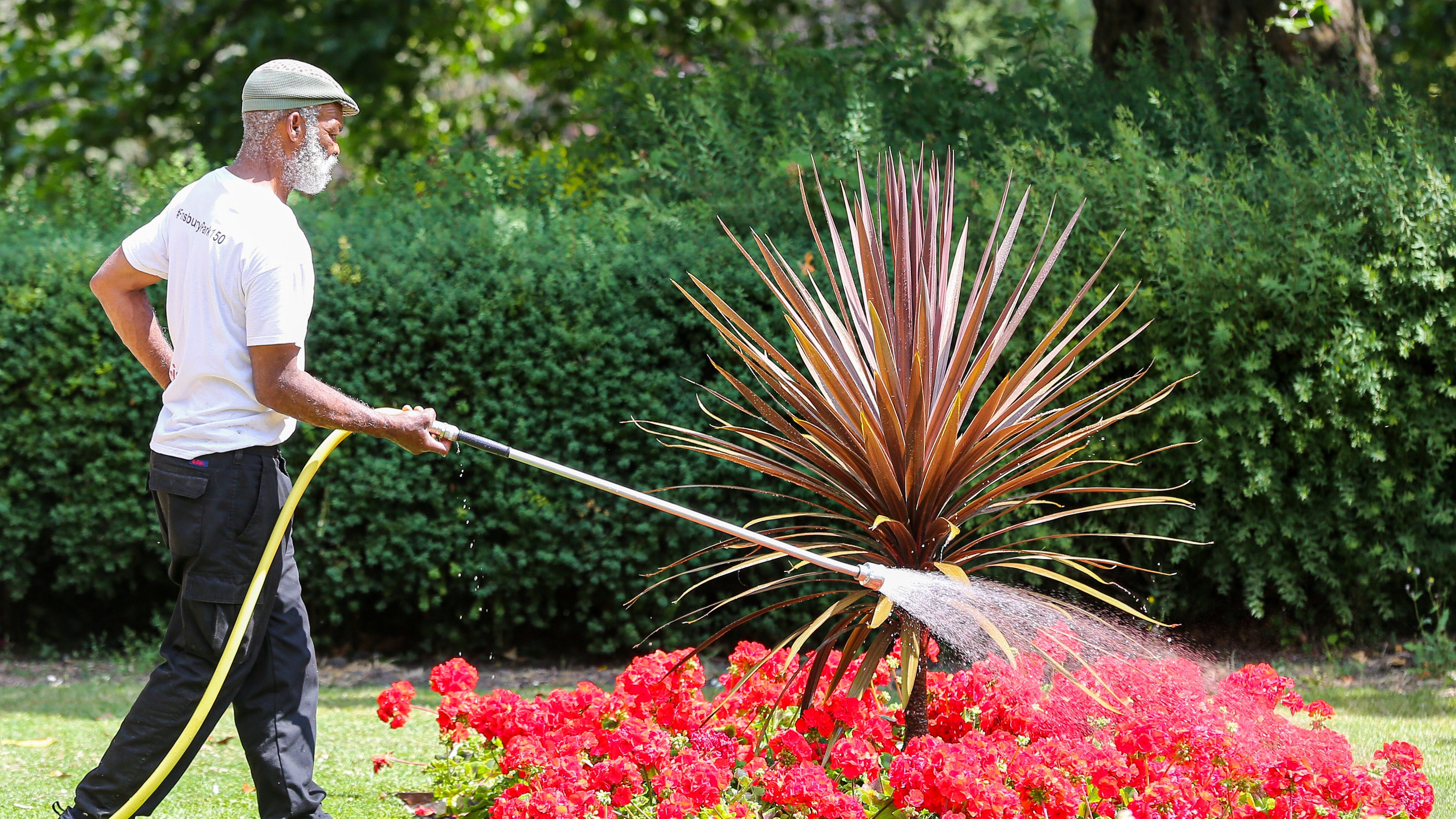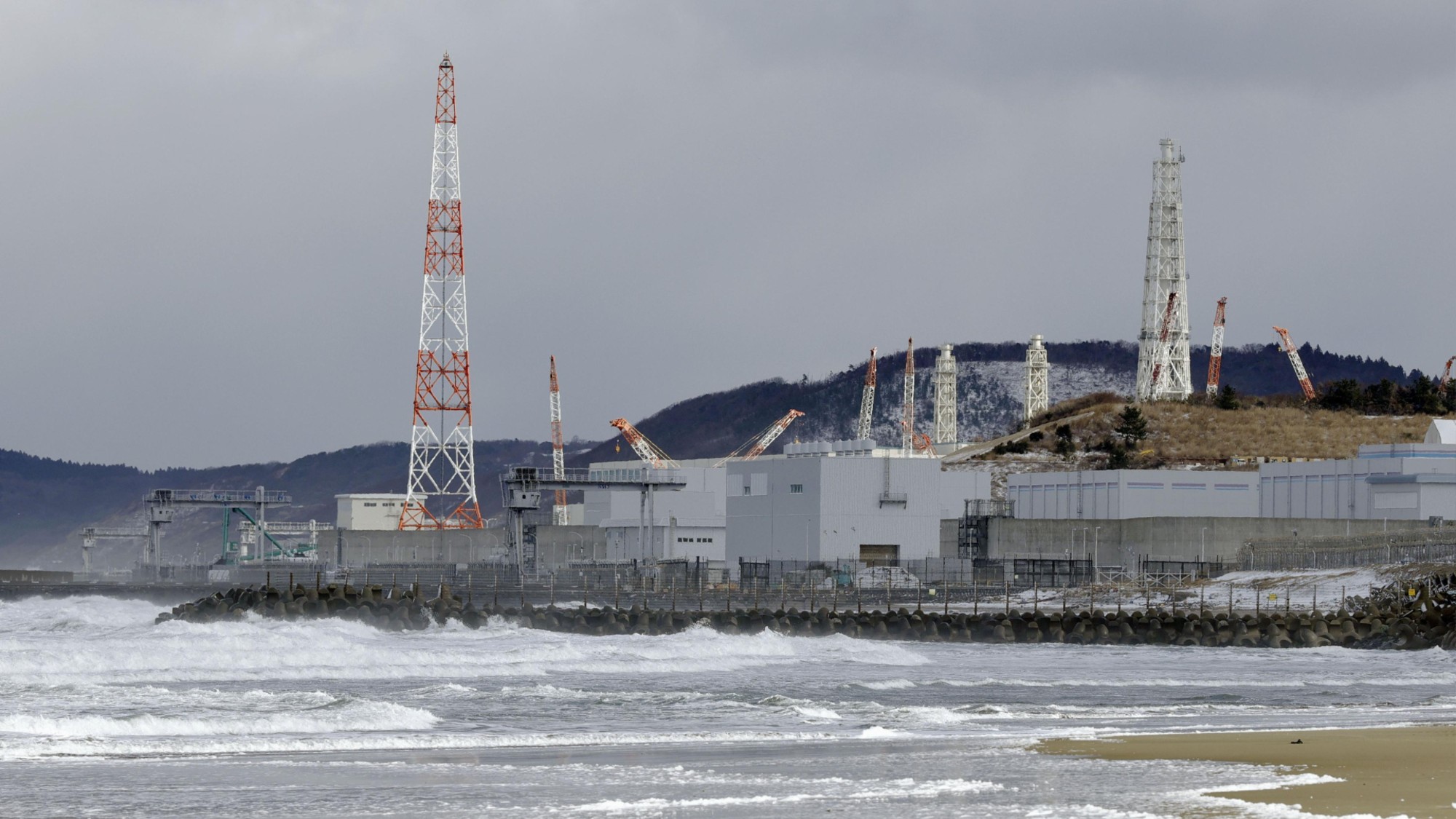Is the UK facing a water shortage?
Restrictions may be introduced later in the summer if there is below-average rainfall

A free daily email with the biggest news stories of the day – and the best features from TheWeek.com
You are now subscribed
Your newsletter sign-up was successful
Households have been warned by water companies to cut their water usage or risk taps running dry as the UK battles a scorching two-day heatwave.
Swathes of England have been issued with the Met Office’s first ever red extreme weather warning today, as temperatures are expected to beat the UK’s record of 38.7C, set in Cambridge in 2019, climbing as high as 40C on Tuesday. The UK could therefore be “hotter than Tamanrasset in the Sahara”, said the Daily Mirror.
With a “sweltering” heatwave gripping the nation, water companies are worried about the high demand for supplies and have suggested a range of ways to save water over the coming days.
The Week
Escape your echo chamber. Get the facts behind the news, plus analysis from multiple perspectives.

Sign up for The Week's Free Newsletters
From our morning news briefing to a weekly Good News Newsletter, get the best of The Week delivered directly to your inbox.
From our morning news briefing to a weekly Good News Newsletter, get the best of The Week delivered directly to your inbox.
Saving water
Yorkshire Water, which supplies more than 5 million people, has recommended that its customers take four-minute showers to help limit supply disruptions and has even suggested a playlist of songs “to help with time management”, said the Mirror.
Anglican Water has been slightly more generous to its 6 million customers, suggesting they take five-minute showers, avoid washing their cars and to “learn to love a brown lawn”. Meanwhile, Severn Trent has requested that its customers turn the tap off when they brush their teeth.
There has already been some disruption to water supplies in Essex, London and Surrey, where Affinity Water has asked customers to manage their usage. The company has “estimated that an extra 164 million litres will be required for Monday alone in comparison to usual demand”, said the paper, as temperatures are set to reach record levels.
On Sunday, residents in Norfolk were stranded without water “for more than 30 hours following a burst pipe”, reported the Mirror, forcing people to join long queues at water collection points.
A free daily email with the biggest news stories of the day – and the best features from TheWeek.com
Thames Water, the UK’s largest water supplier, has said it is taking a number of measures to “help keep taps running” as it is hit with massive demand, including “using tankers to pump extra water where it’s needed most” and delaying planned work so that teams can fix water pipes should problems occur in the coming days.
Hosepipe ban looms?
Water companies have warned that temporary water usage bans could be considered this summer to protect supplies “if the hot spell lingers and households continue to strain resources”, said the i news site.
Natalie Akroyd, water resources manager at Cambridge Water, which serves a population of about 300,000, told the paper: “At this stage we are not placing any restrictions on customers but, if the heatwave continues for an extended period and customers do not reduce their non-essential use, we can consider temporary usage bans (known as hosepipe bans) if necessary.”
Thames Water has also said restrictions may be put in place unless there is above-average rainfall in the remaining summer months.
“We’re not currently expecting to need to introduce restrictions on water use this summer, but we know the water we have stored in our reservoirs will reduce as people start to use more water in their gardens through the summer,” said a spokesperson.
“So if we do not receive around or above average rainfall in the coming months this will increase pressure on our resources and may result in the need for more water-saving measures, including restrictions.”
Reduced rainfall
Thames Water’s supply has “already been affected by reduced rainfall”, said the paper, with the region receiving only 65% of its average rainfall in the last three months, following similarly low levels over spring and winter.
Professor Paul Jeffrey, from Cranfield University, told the BBC that climate change and population growth was driving significant increases in the use of water resources, and water companies needed to become more resilient to pressures on water supplies.
“Being more efficient in the ways we use water, and storing or moving water between areas of deficit and areas of surplus, will all help to ensure more resilient supplies,” he told the broadcaster.
“Specific initiatives which can make a difference include water re-use, new reservoirs, leakage control, water conservation, and bulk transfers.”
-
 The 8 best TV shows of the 1960s
The 8 best TV shows of the 1960sThe standout shows of this decade take viewers from outer space to the Wild West
-
 Microdramas are booming
Microdramas are boomingUnder the radar Scroll to watch a whole movie
-
 The Olympic timekeepers keeping the Games on track
The Olympic timekeepers keeping the Games on trackUnder the Radar Swiss watchmaking giant Omega has been at the finish line of every Olympic Games for nearly 100 years
-
 Why broken water companies are failing England and Wales
Why broken water companies are failing England and WalesThe Explainer With rising bills, deteriorating river health and a lack of investment, regulators face an uphill battle to stabilise the industry
-
 Can the UK take any more rain?
Can the UK take any more rain?Today’s Big Question An Atlantic jet stream is ‘stuck’ over British skies, leading to ‘biblical’ downpours and more than 40 consecutive days of rain in some areas
-
 The world is entering an ‘era of water bankruptcy’
The world is entering an ‘era of water bankruptcy’The explainer Water might soon be more valuable than gold
-
 Fifteen years after Fukushima, is Japan right to restart its reactors?
Fifteen years after Fukushima, is Japan right to restart its reactors?Today’s Big Question Balancing safety fears against energy needs
-
 Can the world adapt to climate change?
Can the world adapt to climate change?Today's Big Question As the world gets hotter, COP30 leaders consider resilience efforts
-
 Taps could run dry in drought-stricken Tehran
Taps could run dry in drought-stricken TehranUnder the Radar President warns that unless rationing eases water crisis, citizens may have to evacuate the capital
-
 Africa's largest dam is making diplomatic waves
Africa's largest dam is making diplomatic wavesUnder the Radar Ethiopians view using the Nile as a 'sovereign right' but the vast hydroelectric project has 'fuelled nationalist fervour' in Egypt and Sudan
-
 When does autumn begin?
When does autumn begin?The Explainer The UK is experiencing a 'false autumn', as climate change shifts seasonal weather patterns